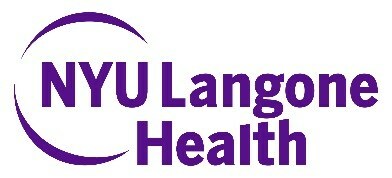A diet that limits meat and dairy but is rich in fruits, vegetables, grains, and nuts is linked to less erectile dysfunction, urinary incontinence, and other common side effects seen in prostate cancer patients, a new study shows.
NEW YORK, Feb. 13, 2024 /PRNewswire/ -- A diet that limits meat and dairy but is rich in fruits, vegetables, grains, and nuts is linked to less erectile dysfunction, urinary incontinence, and other common side effects seen in prostate cancer patients, a new study shows.
Led by researchers at NYU Grossman School of Medicine and Harvard T.H. Chan School of Public Health, the analysis of more than 3,500 men with prostate cancer explored whether eating a more plant-based diet was associated with quality-of-life issues that often arise after treatment. Sorting patients into five groups (quintiles) based on the proportion of plant versus animal foods the men said they eat, the authors found that the quintile that consumed the most plants scored 8% to 11% better in measures of sexual function compared with the group that consumed the least.
Similarly, the results revealed up to 14% better scores for urinary health, with fewer instances of incontinence, obstruction, and irritation. The authors further found up to 13% better scores in hormonal health (which assesses symptoms like low energy, depression, and hot flashes) among the highest quintile of plant-based diet compared with the lowest.
"Our findings offer hope for those looking for ways to improve their quality of life after undergoing surgery, radiation, and other common therapies for prostate cancer, which can cause significant side effects," said study lead author and urologist Stacy Loeb, MD. "Adding more fruits and vegetables to their diet, while reducing meat and dairy, is a simple step that patients can take," added Loeb, a professor in the Departments of Urology and Population Health at NYU Langone Health.
Prostate cancer is among the most common and deadliest forms of cancer among American men, according to the U.S. Centers for Disease Control and Prevention. Previous research by the same team had already found that eating a plant-based diet may reduce the risk of developing the disease in the first place. Other investigations have connected this diet to a lower risk of sexual dysfunction in general but not specifically for those with prostate cancer, who are at particularly high risk for such issues.
The new study, publishing online Feb. 13 in the journal Cancer, is also believed to be the first of its kind to show better urinary health in these patients based on nutrition, says Loeb.
For the research, the team analyzed data from the Health Professionals Follow-Up Study, an ongoing investigation begun in 1986 and sponsored by Harvard Chan School. The data set is composed of information on more than 50,000 male dentists, pharmacists, optometrists, osteopaths, podiatrists, and veterinarians. The project was designed to better understand how nutrition influences risks related to cancer, heart disease, and other serious illnesses.
As part of the project, men with prostate cancer answered a questionnaire every four years about the kinds of foods they ate and in what proportions. Another survey, which was administered every two years, assessed frequency of incontinence, difficulties maintaining an erection, and problems with bowels, energy, and mood, among many other health concerns. Most of the patients (more than 83%) had received prostate cancer treatment, Loeb notes, and all included in the current study had early forms of the disease that had not yet spread to other organs. She adds that when searching for potential connections between plant-based diet and health, the research team took into account weight, physical activity, and many other factors that could affect quality of life.
Among the findings, the researchers say, eating high amounts of any plant-based food was linked to better sexual health, urinary health, and vitality scores, regardless of demographic factors, lifestyle differences, or history of other medical issues such as diabetes. Eating more healthy plant-based food was also associated with better bowel function, which, Loeb says, may be explained by the dietary fiber found in plants.
"These results add to the long list of health and environmental benefits of eating more plants and fewer animal products," said Loeb. "They also clearly challenge the historical misconception that eating meat boosts sexual function in men, when in fact the opposite seems to be the case."
Loeb cautions that the men assessed in the study were mostly White healthcare professionals. As a result, she says the team next plans to expand their research to a more diverse group of patients and to those with more advanced stages of the disease.
Funding for the study was provided by National Institutes of Health grant U01CA167552, New York State Department of Health, Tricia and Michael Berns, and the Prostate Cancer Foundation.
In addition to Loeb, other investigators involved in the study are Qi Hua, MSc; Alaina Shreves, MS; and Edward Giovannucci, MD, ScD, at Harvard Chan School in Boston. Scott Bauer, MD, ScM; Stacey Kenfield, ScD; June Chan, ScD; and Erin Van Blarigan, ScD, at the University of California, San Francisco; and Alicia Morgans, MD, MPH, at the Dana-Farber Cancer Institute in Boston. Lorelei Mucci, MPH, ScD, at Harvard Chan School, served as study senior author.
Media Inquiries:
Shira Polan
Phone: 212-404-4279
shira.polan@nyulangone.org
![]() View original content to download multimedia:https://www.prnewswire.com/news-releases/plant-based-diet-tied-to-improved-sexual-health-in-men-treated-for-prostate-cancer-302057117.html
View original content to download multimedia:https://www.prnewswire.com/news-releases/plant-based-diet-tied-to-improved-sexual-health-in-men-treated-for-prostate-cancer-302057117.html
SOURCE NYU Grossman School of Medicine and NYU Langone Health





